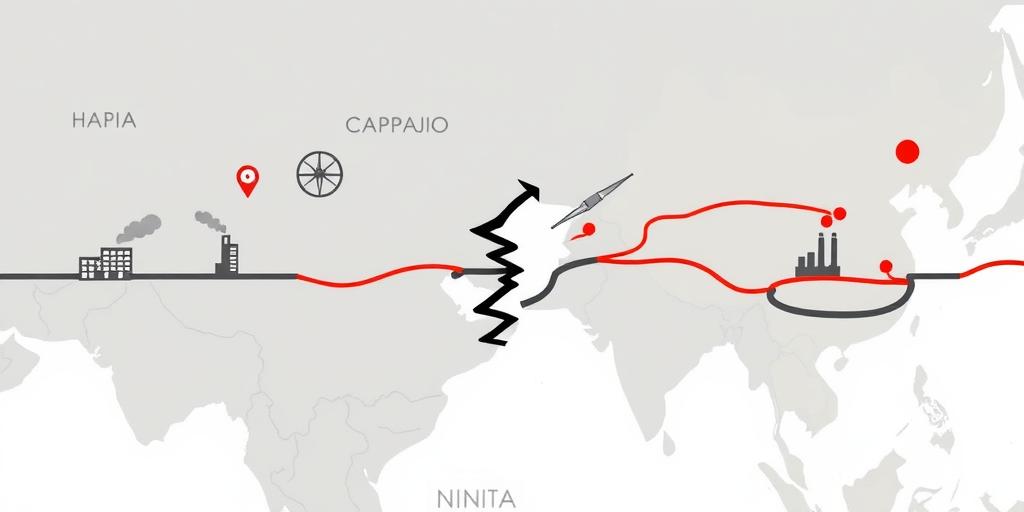Border disputes, often rooted in historical, political, or ethnic tensions, have far-reaching economic implications that extend well beyond the immediate conflict zone. These disputes can disrupt trade, hinder investment, divert resources, and create long-term instability, affecting both the nations directly involved and the wider global economy.
One of the most immediate economic consequences of border disputes is the disruption of trade. When disputes escalate, borders may be closed or heavily restricted, leading to a significant decrease in the flow of goods and services. This can result in shortages of essential commodities, increased prices, and reduced export revenues for affected countries. For example, disputes over maritime boundaries can impede fishing activities and offshore oil exploration, impacting food security and energy supplies.
Investment is another area severely affected by border disputes. Investors, both domestic and foreign, are often wary of committing capital to regions embroiled in territorial conflicts. The uncertainty surrounding property rights, security risks, and potential for expropriation can deter long-term investments, leading to slower economic growth and development. Companies operating in these regions may face increased insurance costs, higher security expenses, and reduced profitability.
Border disputes also divert significant resources away from productive economic activities towards military spending and security measures. Governments may allocate substantial portions of their budgets to defense, border patrols, and conflict resolution efforts, reducing the funds available for education, healthcare, infrastructure, and other essential public services. This reallocation of resources can hinder long-term economic development and exacerbate social inequalities.
Furthermore, border disputes can lead to displacement of populations and humanitarian crises. People living in contested areas may be forced to flee their homes, becoming refugees or internally displaced persons. This displacement can disrupt agricultural production, strain social services, and create additional economic burdens for host communities and governments. The cost of providing humanitarian aid, resettlement assistance, and long-term support for displaced populations can be substantial.
In addition to these direct economic effects, border disputes can also have indirect consequences. They can undermine regional integration efforts, disrupt supply chains, and create a climate of uncertainty that affects overall economic stability. The negative spillover effects can extend to neighboring countries and even to global markets, particularly if the disputes involve major economic powers or strategic trade routes.
To mitigate the economic implications of border disputes, it is essential to pursue peaceful and diplomatic solutions. Mechanisms such as international arbitration, mediation, and negotiation can help resolve territorial claims and prevent escalation of conflicts. Strengthening regional cooperation, promoting cross-border trade, and fostering economic interdependence can also reduce the incentives for conflict and create a more stable and prosperous environment for all parties involved.
In conclusion, border disputes have significant economic consequences that can hinder development, disrupt trade, and create instability. Addressing these disputes through peaceful means and promoting regional cooperation are crucial for fostering long-term economic growth and prosperity.









